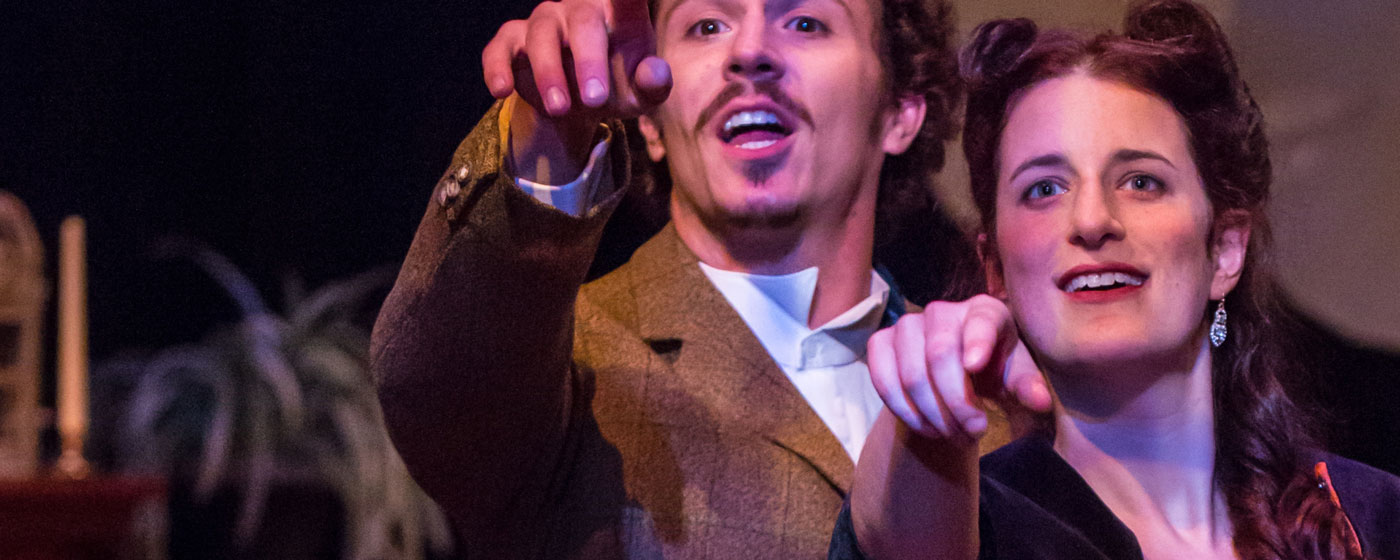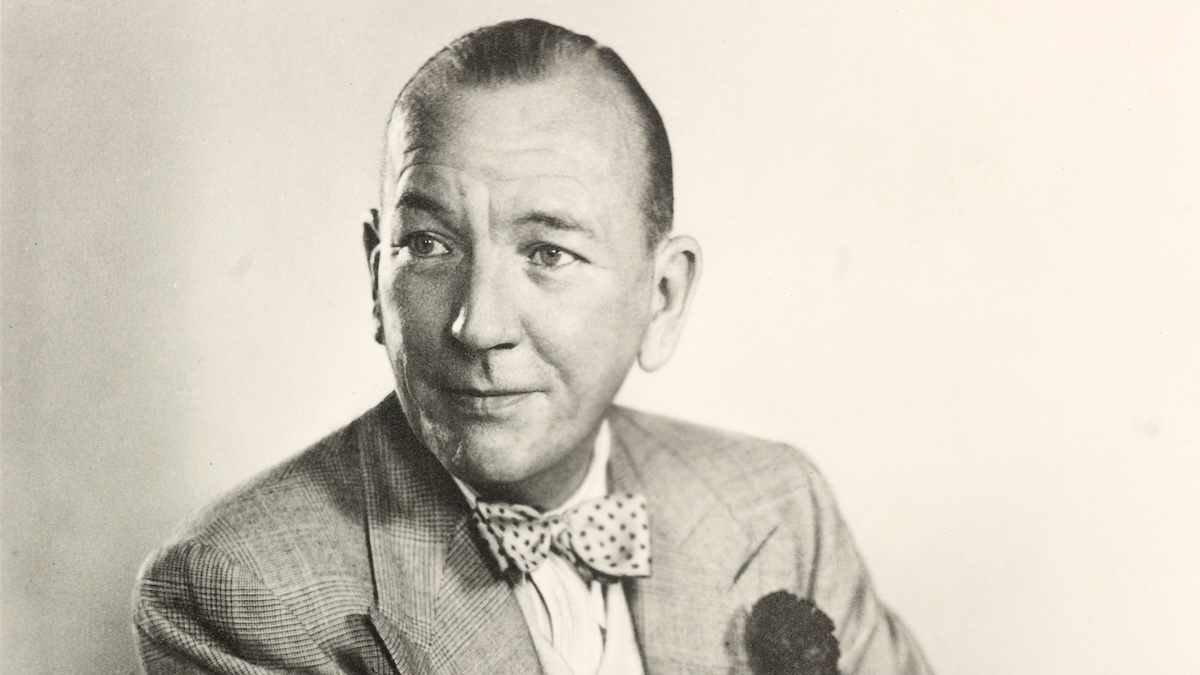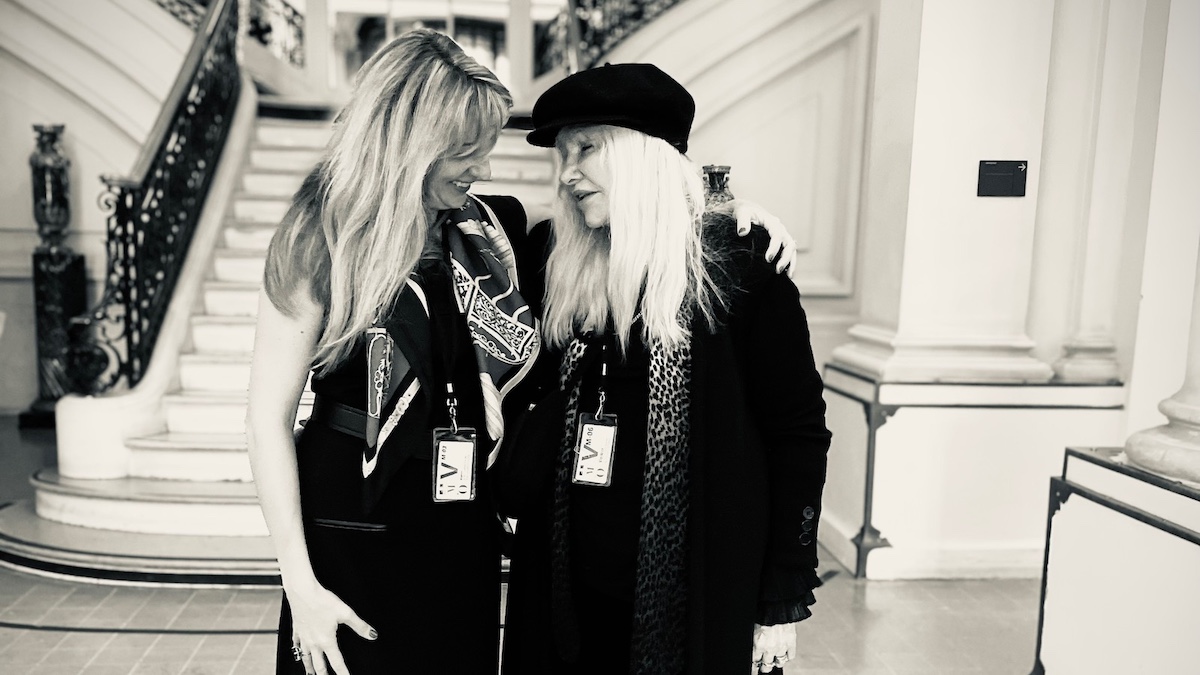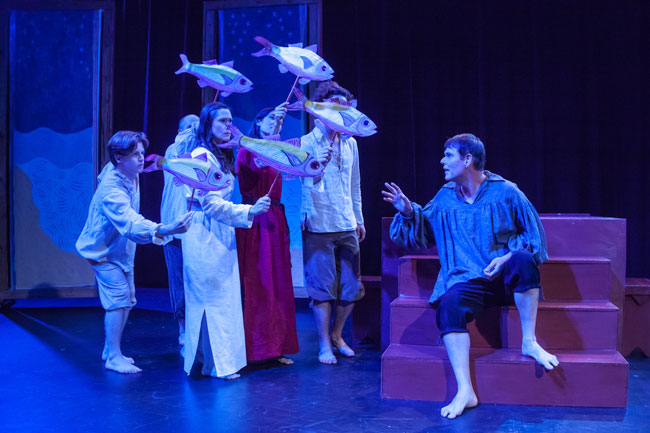
Profile Theatre in Portland, Oregon had the privilege of producing not just one production of a Sarah Ruhl play, but a full season of her work, as our mission is to feature a single playwright for a full year. This mission provides our audience and community with the opportunity to become intimately familiar with the unique voice of an exceptional artist, to see the arc of their body of work, and to place both in the context of our greater society. Our 2015 Sarah Ruhl season included four fully produced productions (Dead Man’s Cell Phonen; In the Next Room or The Vibrator Play; Passion Play and Orlando), two staged readings of some of Ms. Ruhl’s other work- her translation of Chekhov’s Three Sisters and Stage Kiss, as well as a student production of Eurydice. At the time, I was serving as Profile’s Director of Education and Community Engagement, and was also an actor in In the Next Room.
As we embarked on the season as a company, what was immediately apparent was the versatility of Ruhl’s body of work. The worlds she creates, her characters and the conflicts that they encounter range across (and sometimes beyond) the wide spectrum of human experience. Accordingly, each of her scripts present vastly different opportunities for a creative team. Whether it be the careful crafting of a Victorian drawing room and the family living therein, the evocation of a small German town at the start of World War II, traveling across time with an English hero/ine, or imagining what it is to suddenly find oneself in the afterlife, directors, designers and actors must share a common understanding of how they are going to create the specific world that Ruhl has offered through her words. Indeed, one thing that is consistent across Ruhl’s body of work is that she does not tell artists how to realize her vision. Instead, she furnishes the idea, the image, the moment, and then trusts those handling her plays to find their own unique way to share the soul of her stories.
As the season at Profile progressed, I was fascinated to realize that while her work did demonstrate a remarkable diversity of style and story, the plays shared something in their tone and essence that was indelibly “Sarah” (as we at Profile came to call her quite early on in the season.) I believe that it was this unique quality that brought people back to our theatre again and again over the course of the year – one of the most successful seasons in Profile’s 19 year history.
Garland Lyons with the ensemble of PASSION PLAY. Credit: David Kinder.
Sarah skillfully balances questions which often, in other hands, seem to be mutually exclusive. She interrogates what it is to be human, to love, to lose, to be alone and isolated, while at the same time filling her plays with unapologetic curiosity, with earnestness, with an embrace of the beautiful, the kind and the generous. Her work is void of cynicism, imbued instead with an infectious buoyancy. She rejects the expectations of the “well made” play in favor of embracing the natural unfolding that each of her stories demands, whether that includes a raining elevator, a well placed soliloquy, the disappearance of the set, or a parade of fish.
Perhaps this is why Sarah is often saddled with the adjectives “whimsical” and “quirky” – two words that are enormously reductive of the scope and depth of her work. Yet there does not seem to be a sufficient word in the English language that communicates her distinctive ability to hold that which is most difficult about being human right up against delight, humor and glorious theatre magic. Perhaps the word exists in French.
Spending a year with Sarah Ruhl’s work was an incredible experience, as an artist, an educator and a producer. Her plays drew people together – students adored working with her words, our creative teams and casts reveled in the collaborative spirit born from bringing her plays to life, and our lobby was full, again and again with audience members excited and moved by their experiences in the theatre.
There is a reason why people are eager to produce Sarah’s work. I believe it is in large part because she is, at heart, an optimist. So many of us are hungry for that kind of world view – one that offers us hope. In Sarah’s work, pain and darkness do not annihilate light and joy – they exist side by side, and she deftly swings us back and forth and back and forth.
But she always leaves us in the light.
This article was part of our 2016 Samuel French Awards Series, honoring Sarah Ruhl, Keith Josef Adkins of The New Black Fest, and Michael Kooman & Christopher Dimond.

Noël Coward’s Travels

Kate Chopin in New Orleans: Mother-Daughter Author Duo Collaborate on Historical Book


